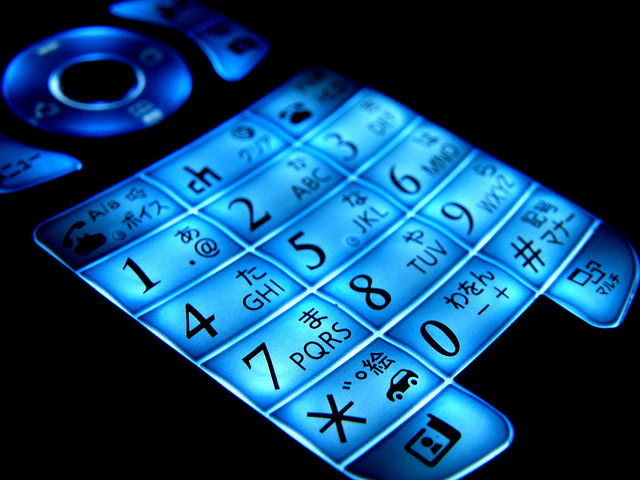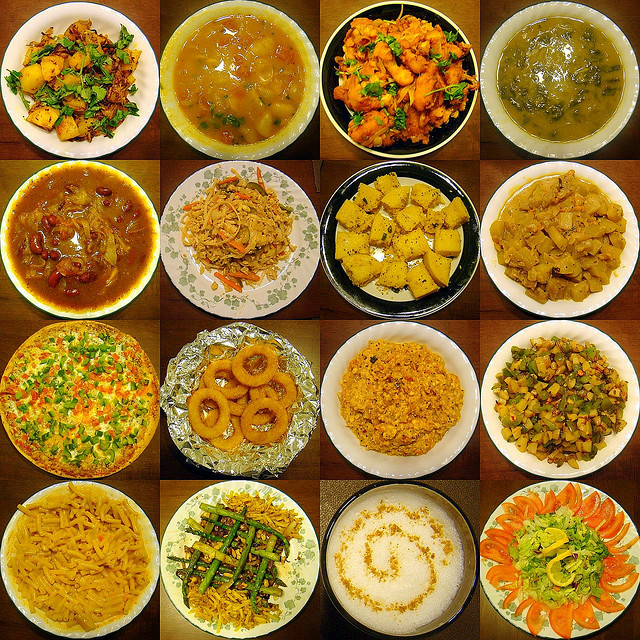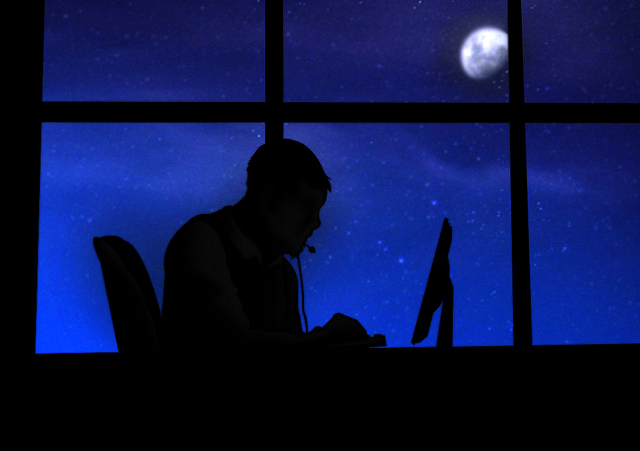Living in the modern world, we might not notice just how much light we're surrounded by. From streetlights to television screens, we are constantly inundated by artifical luminescence, and we are only just now starting to realize the dangers of it. Blue light in particular, which is released in heavy quantities from smartphone screens, tablets, and even ereaders, has negative effects on our sleep schedules.
Have you ever gone to bed ready to sink into a deep, restful sleep--only to find that your stoamch is bubbling because of that heavy dinner you ate, keeping you up? Or that your brain is still buzzing from that sugar or caffeine you had with dessert? Or that you can't stop thinking about a midnight snack? Eating inappropriate foods before bed is a common cause of insomnia. Read on to learn about what foods make for a sound sleep.
Topics: Good Sleep Habits
Working Late? Watch out for Shift Work Disorder
Posted by Julia Steele Rodriguez
Apr 9, 2015 8:00:00 AM
In the tough economic climate we've been having lately, workers' hours have been cut in order to meet insurance regulations and jobs have been outsourced. To make ends' meet, people have been taking what work they can find. Oftentimes, this means taking shift work in various industries. But working the late shift can mean more than just having an odd schedule; in fact, it can even lead to a sleep disorder.
Sleep is critical, but many people just can't get enough. As that mid-afternoon slump hits, you may find it hard to focus. Where did you leave your glasses? Did you answer that email? When you're not getting enough sleep, short and long-term memory formation suffers. Fortunately, we have some good news for you!
Topics: Good Sleep Habits
Sometimes, you need a before-bed snack to help quiet your stomach before nodding off for the night. But the type of foods that you choose before going to bed can affect the quality of your sleep. When you open that cupboard, you want to make sure that you're chosing foods that are good for your sleep, not snacks that will keep you tossing and turning all night.
Check out our list of tips on what to eat before bed!
Topics: Good Sleep Habits, Sleep and Society
Everyone has had trouble sleeping at some point in their lives. Maybe nerves about an upcoming presentation, a late-afternoon nap, or a hefty before-bed snack kept you up into the wee hours of the night. The next day probably wasn't one of your best--maybe you felt sluggish, exhausted, and irritable.
But for insomniacs, this experience can become a common one. Here are the signs, causes, and potential treatments for insomnia.
Topics: Sleep Disorders, Good Sleep Habits
NEW Guidelines: How much sleep do you need?
Posted by Julia Steele Rodriguez
Feb 28, 2015 8:00:00 AM
Conventional wisdom holds that adults need eight hours of sleep a night to wake up feeling healthy and rested. But like many pieces of old advice, scientific invesitgation has found that this guideline isn't as simple as we might think. Now, new sleep guidelines from some of the top experts in the field attempt to answer the ultimate question: How much sleep do you really need?
Topics: Good Sleep Habits, Sleep and Society
Exercise has a lot of benefits for the body. It burns fat, helps maintain healthy living patterns, and improves your mood while reducing your stress levels. And--if you do it properly--exercise can also help you sleep better when you lay your head down on that pillow.
Topics: Good Sleep Habits
How to Convince Your Boss to Start Work Later
Posted by Julia Steele Rodriguez
Feb 7, 2015 8:00:00 AM
How many of us have gone to sleep in the wee hours of the night, only to wake up feeling groggy and tired? You probably thought that going to bed earlier would cure the problem--but unfortunately, it's not always that simple. A new study has found that the later work starts, the more sleep workers get, meaning that later start times are actually better for your health!
Topics: Good Sleep Habits, Sleep and Society

What is sleep, exactly? It takes up 1/3 of our lives, yet most of us really don't know why it's important. It's necessary for our survival--without sleep, we would die. This is backed up actual human examples and scientific testing. In fact, rats kept without sleep for two or three weeks die just as if they hadn't been given food or water. So what is this process doing for our brains and bodies that is so integral to our health?
Topics: Good Sleep Habits












